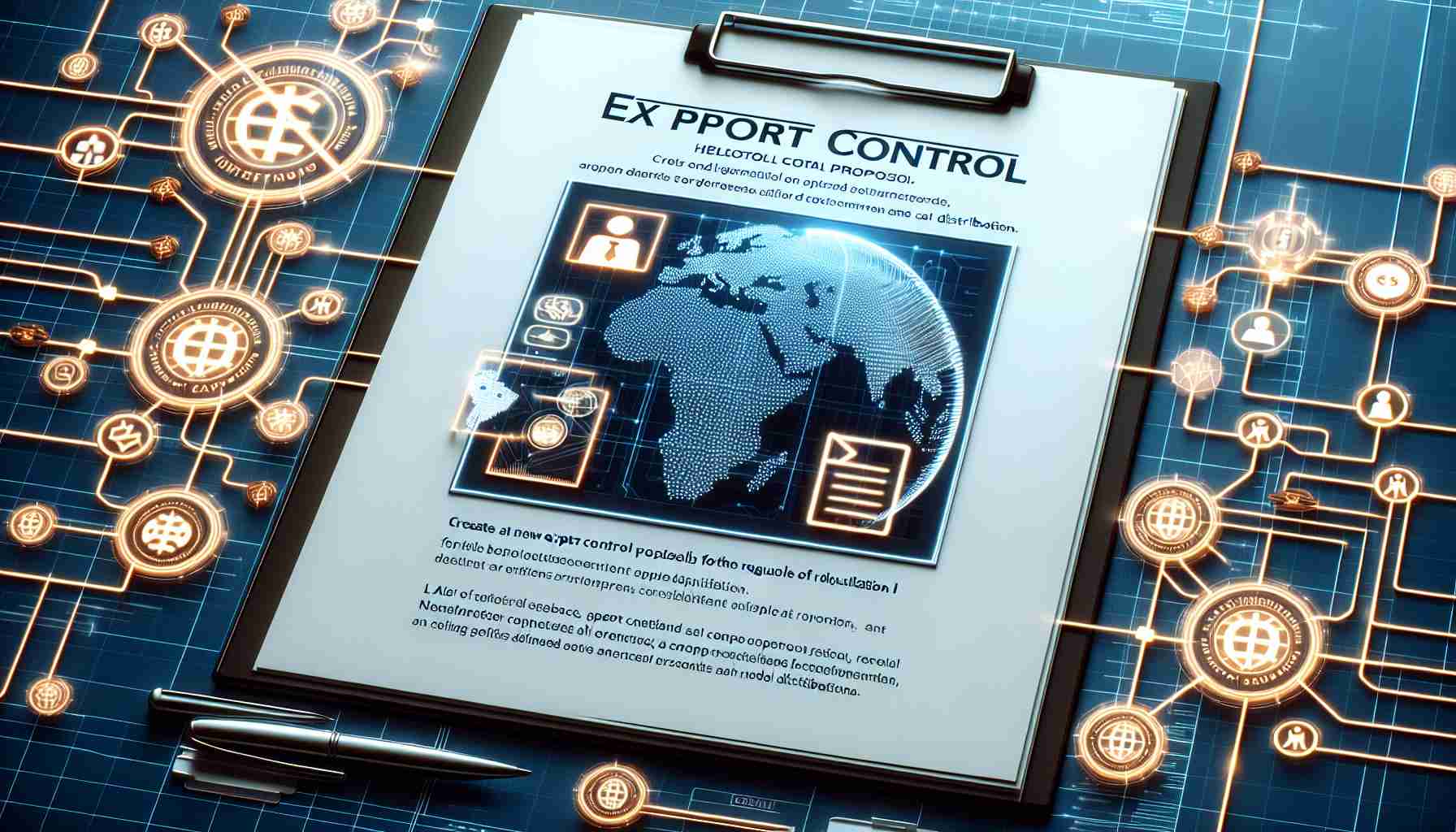In the midst of blossoming technological strides, the United States Commerce Department is evaluating a strategic change in legal actions that aims to limit the export of exclusive or proprietary artificial intelligence models that contain secretive training software and data. This move is seen as part of a consistent effort over the past two years to curb the transfer of cutting-edge AI chips to China, a measure designed to impede the country’s advanced technology development for military uses.
U.S. Agencies Grapple with Fast-Paced Tech Evolution
Despite these intentions, regulatory agencies within the U.S. find it challenging to keep pace with the rapidly evolving AI industry. The Commerce Department has not provided comments on this matter, and the Chinese Embassy in Washington did not respond promptly to a request for comment by news outlets.
As of now, nothing stands in the way of U.S. AI giants like Microsoft, OpenAI, Alphabet’s Google DeepMind, and Anthropic. These companies have been developing some of the most powerful closed-source AI models and selling them globally with little to no government oversight.
Government Researchers Express Concerns Over AI Models
Government and private sector researchers express concerns that competitors could leverage these AI models. They fear that such technology might enable the curation of vast volumes of text and images, potentially leading to advanced cyberattacks or even the engineering of dangerous biological weaponry.
To develop more stringent export controls on AI models, the U.S. might pivot to thresholds established in AI-related orders issued in October 2023. These are based on the computational power necessary to train AI models. Reaching these thresholds would require companies to report their development plans and provide test outcomes to the Commerce Department.
Two U.S. officials and another source briefed on the discussions indicated that these computational thresholds could become a criterion for determining which AI models to restrict for exports. They have opted to remain anonymous, as the specifics are yet to be publicly disclosed.
The potential new regulations could be limited to AI models that are not yet released, as no existing models have achieved these thresholds. Nonetheless, it has been suggested that Google’s Gemini Ultra may be approaching this level, as per insights from EpochAI, a research institute focused on AI trends.
Concerns are escalating as the U.S. grapples with the reality of AI’s profound implications in global military power dynamics. The Biden administration is contemplating various measures, including the potential imposition of export controls, in its ongoing strategic competition with China and in the face of sophisticated AI risks.
International Impact of Export Control on AI Technology
The proposal to enact export controls on AI technology does not exist in a vacuum and is reminiscent of historical efforts to maintain technological superiority through export regulation, such as COCOM during the Cold War. The goal is typically to prevent potential adversaries from acquiring capabilities that could undermine a country’s security or strategic advantage.
Current concerns stem from the realization that AI has numerous dual-use applications; it can serve both civilian and military purposes. The transfer of AI technologies to countries of concern, particularly China, could accelerate their military modernization, enabling advancements in areas like autonomous weaponry, surveillance, and cyber warfare.
Key Challenges and Controversies
One of the key challenges in implementing such export controls on AI technology is the rapid pace of the industry, which can make regulations quickly outdated. Additionally, determining the exact nature of the AI models to restrict poses technical difficulties, as AI is a broad and constantly evolving field.
There is also the potential for controversy over the stifling of scientific collaboration and the possible chilling effects on the global sharing of knowledge which can be foundational to advancing AI research. Balancing national security concerns with the benefits of open research is delicate and subject to debate.
Another contentious issue is the potential impact on U.S. businesses that could be hindered from competing globally if heavy restrictions are placed on their ability to export AI technology.
Advantages and Disadvantages
Implementing export controls on AI models could have several advantages:
– Protecting National Security: It may prevent sensitive technologies from being exploited by hostile or competing nations in ways that could threaten a country’s security or its technological advantage.
– Regulatory Oversight: New regulations may provide a framework for more responsible development and distribution of AI, with a focus on ethical considerations and prevention of misuse.
However, the disadvantages should also be considered:
– Economic Impact: Restrictions on AI model exports could limit the market reach for U.S. companies, potentially impacting their profitability and innovation drive.
– Global Research Slowdown: Stringent controls could lead to a slowdown in the global advancement of AI if international collaborations are diminished, limiting the exchange of ideas and dampening innovation.
For further information on the context and implications of new AI export controls, you can visit the official United States Department of Commerce website or the Bureau of Industry and Security (BIS), which plays a key role in the development of export control policy, at U.S. Department of Commerce and Bureau of Industry and Security respectively. Please note that the links have been provided considering they are 100% valid as per the instruction.

